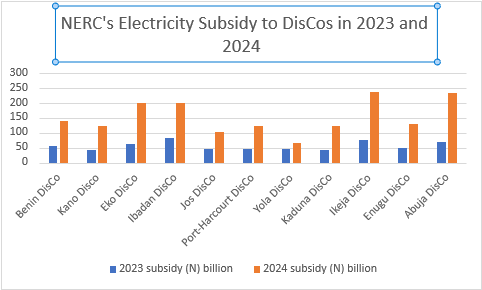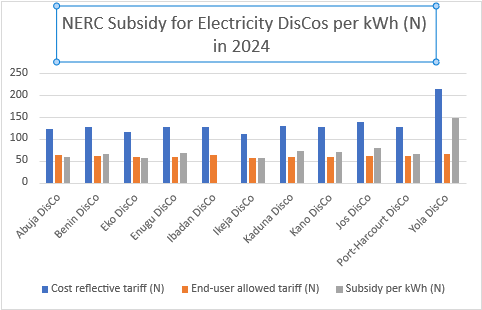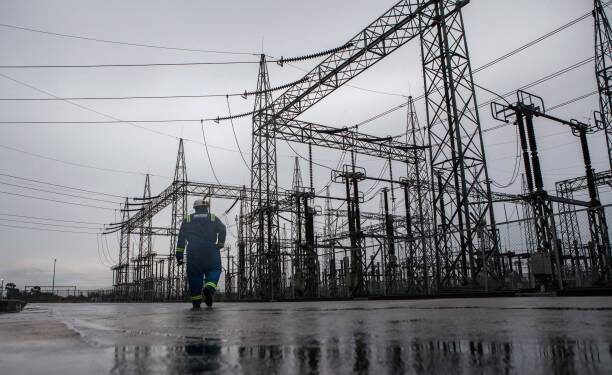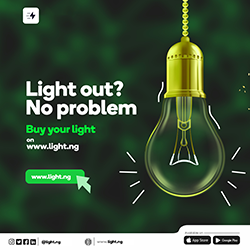The Federal government is set to pay around N1.67 trillion as electricity subsidy in 2024 according to data gleaned from the new tariff plan for the eleven Electricity Distribution Companies across the country.
The figure represents an increase of 170% from the N619 billion reportedly paid in 2023 according to the same document.
Customers of Ikeja DisCo will benefit the most from the plan with around N238 billion earmarked as subsidy for the Disco in 2024- up from N77.41 billion reportedly paid in 2023. This is closely followed by the Abuja Electricity Distribution Company (AEDC) which is projected to receive around N233 billion as electricity subsidy this year.
Yola Electricity DisCo had the least amount projected for subsidy in the year with just N64.48 billion up from N45.95 billion reportedly paid as subsidy in 2023.

How the cost-reflective tariff was calculated
The amount for subsidy was calculated using the revised tariff for Electricity Distribution companies across the country factoring inflation in Nigeria and the United States, gas prices, exchange rate of the NGN to the USD, energy generated and delivered etc.
- The Nigeria Electricity Regulatory Commission (NERC) pegged the billable electricity tariff for most DisCos below the calculated cost-reflective tariff leading to the subsidy.
- For the Benin DisCo, the cost-reflective tariff arrived at between the DisCo and NERC stood at N126.0 per kWh. However, the NERC approved DisCos to charge N60.1 per kWh leading to a subsidy of N65.90 per kWh.
- Similarly, the cost-reflective tariff for the Ikeja DisCo is N112.1/kWh but the approved user tariff is N56.6 per kWh for the year 2024.
- This results in a monthly subsidy payment of N19.85 billion- the highest in the country for the year.

No provision for electricity subsidy in 2025 and beyond
While the Nigeria Electricity Regulatory Commission (NERC) provided for electricity subsidy in 2024, there is no provision for subsidy in the year 2025, 2026 and 2027.
The Chairman of the NERC had hinted that the tariff will be adjusted with time, and the continuation of the electricity subsidy is due to the increase in inflation and cost of living across the country.
Nigerians are currently battling a cost-of-living crisis with inflation at a 27-year high mainly propelled by rising food and transport cost.
An approval of the cost-reflective tariff by the NERC will almost double the electricity tariff across many DisCos which will further worsen the inflationary pressure on Nigerians and scuttle the President’s drive to see inflation drop to 21.4% in 2024.
For more News like this visit www.blog.light.ng.
Source: Nairametrics.com.






